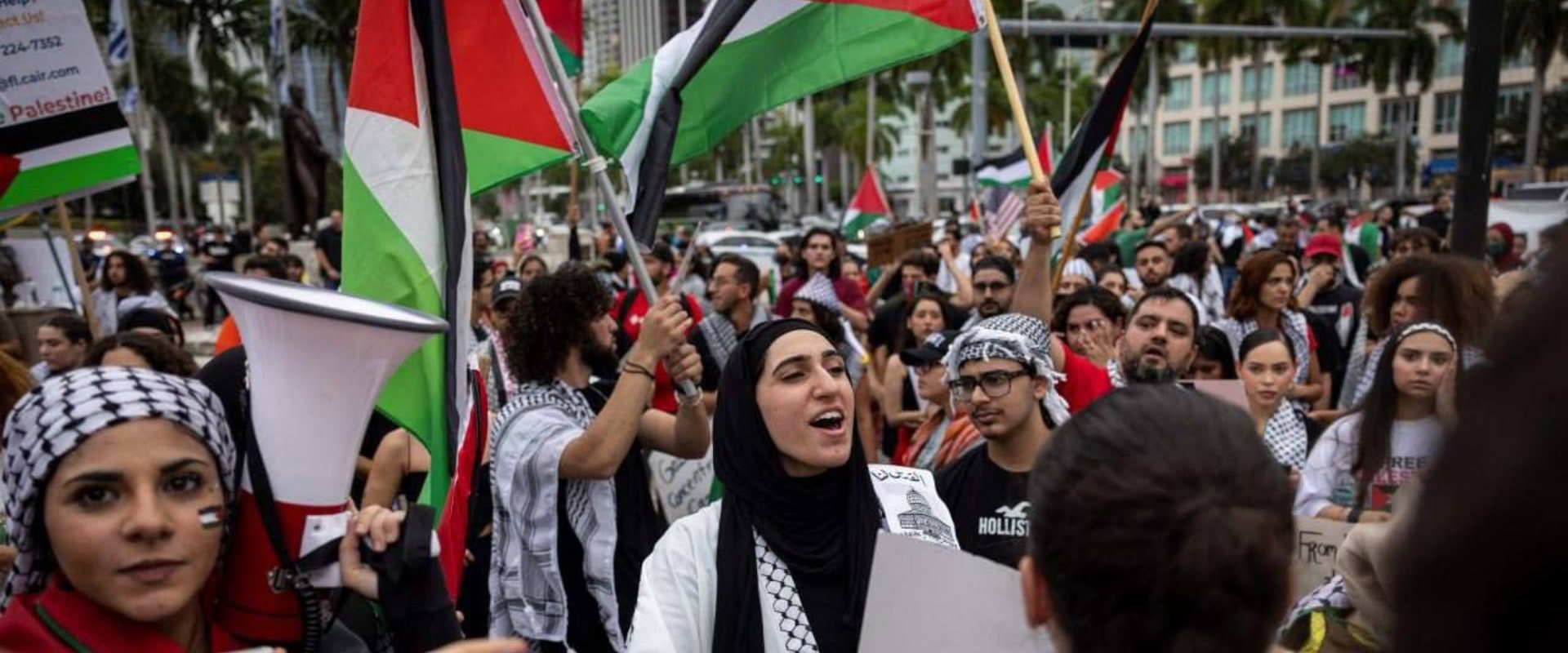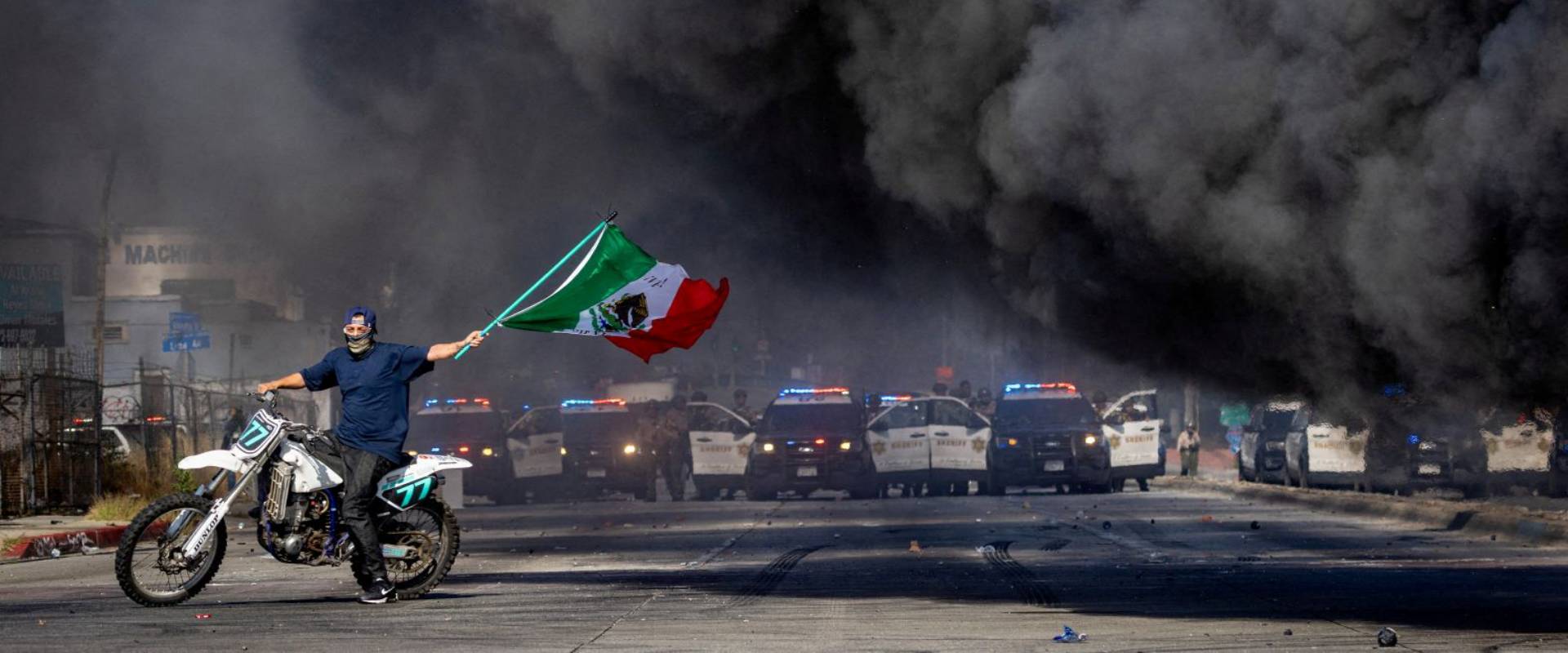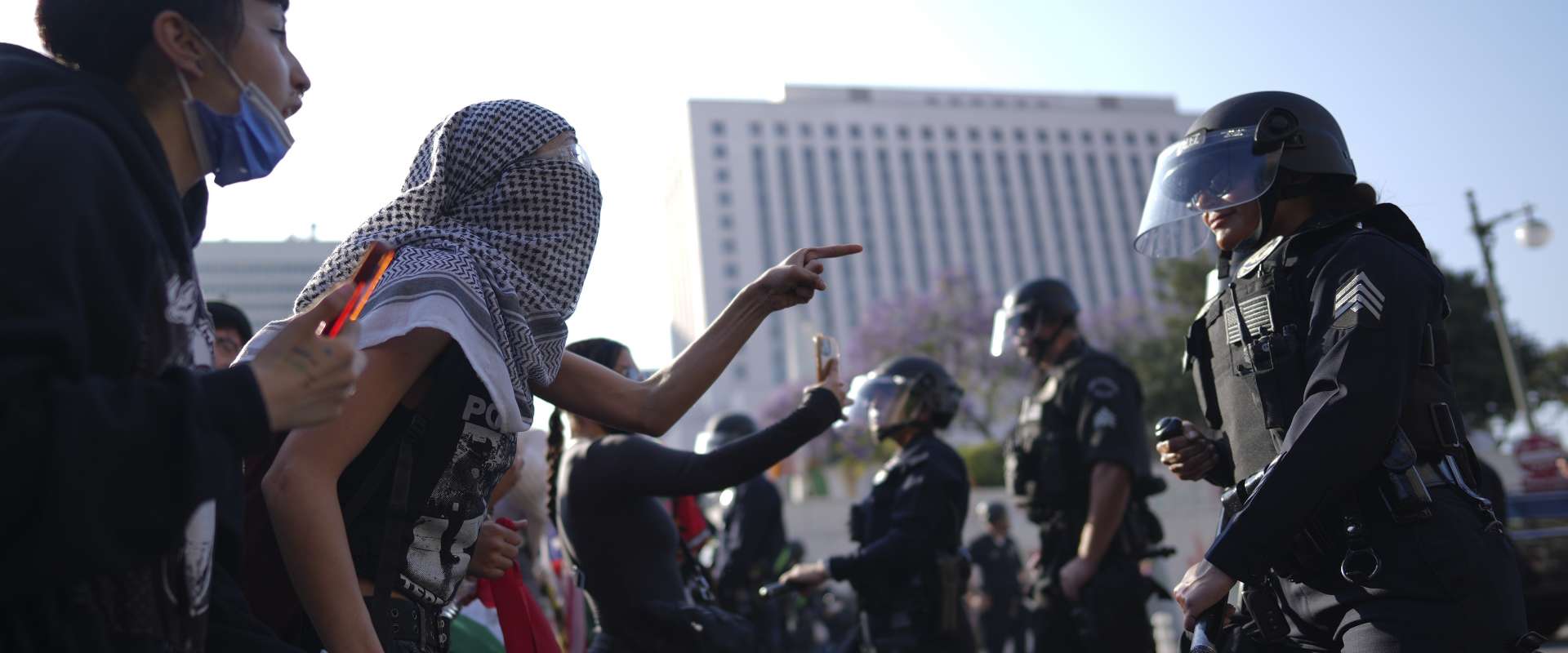Palestinians have been under siege, colonial occupation, expulsion, dispossession, oppression and repression for over 75 years. They have resisted Zionism and imperialism for even longer. Much of this resistance has been nonviolent or at most the hurling of rocks.
On October 7, 2023 this changed. Hamas, the government of Gaza, launched military incursions into Israel. This was the first major military campaign by Palestinians originating within Palestine. Hundreds of Israelis were killed. They too are victims of Zionism.
In the wake of this operation, the leadership of the Zionist entity was caught completely off guard. They could not foresee such a bold attack that held the Israeli Defense Forces (or, as they should be named, the Israeli Offense Forces) at bay for hours or days. Predictably, their reaction was over the top, with a military assault on Gaza so brutal and bloody it has shocked the world. They also lost any remaining touch with reality. Various Israeli leaders have demanded Palestine lose more territory — even calling for a new Nakba; they have spoken of a “nuclear option”; their rhetoric has gone from being racist to genocidal.
The backers of Israel, chiefly the United States, also went ballistic. President Biden sent in the Navy’s Sixth Fleet and promised any needed military support. From left to right, US politicians have sworn allegiance to Israel.
The need to oppose the whole ruling class in order to support Palestine creates the potential for more radicalization than exists around other issues.
Self-proclaimed socialists in the Democratic Party have been as rabid as Republicans. This has created tensions and backpedaling in the Democratic Socialists of America, as DSA politicians like Alexandria Ocasio-Cortez have criticized the DSA for not being Zionist enough.
The media have followed suit. Conservative and liberal media echo the government and ruling-class line. Everyone is denouncing the “terrorists” in Hamas. Some have sheepishly admitted that there might be some reasons for Palestinians to be upset with Israel and even acknowledged that there was now a humanitarian crisis in Gaza. Even they, however, parade their support for Israel.
All of this has very suddenly created a new period of political crisis in the US. It has some similarities to earlier crises, but also important differences that point to the way forward for the revolutionary left.
Lessons from previous crises
In 1979, Iranian militants took 66 US diplomats and embassy staff hostage. This whipped up a relatively brief patriotic fervor which threatened the lives and well-being of Iranians and others that “looked like” Iranians in the US. Demonstrations against Iran and Iranians swept the country. This was an example of a united ruling class and a mostly united population behind the ruling class. Many on the left tried to defend Iranians and counter the patriotic mood. However, the country as a whole was behind the hysteria to one degree or another. Even those opposing US military action did not defend the hostage-takers.
In 2001, the attack on 9/11 again created a united ruling-class response and mass patriotic fervor. There were liberal and leftist attempts to oppose the drive to war,some of which were relatively large. The International Socialist Organization (ISO) put out a special edition of Socialist Worker with the headline “Don’t Turn Tragedy into War!” Even on the left, no one (except leftist academic Ward Churchill) defended the actions of the 9/11 perpetrators.
The war fever died down slowly, and ultimately a majority of Americans opposed the US occupation of Afghanistan, but this took years. This decline in US popular support for the war paralleled ruling-class reservations about the continuing occupation.
Millions of people opposed the US war on Iraq before it started in 2003. Most of the ruling class supported the war but there were strategic differences early on. This war never created the wave of patriotic hysteria of the other two crises. However, the horror over the 9/11 attack moderated the opposition to the Iraq war.
The current landscape
In the current political crisis over Palestine, the ruling class is unquestionably united in its support for Israel. There is Zionist fervor among a layer of the population, but that fervor is far from unanimous. An opinion poll on October 15 showed that only 53% of Americans thought that the US government should intervene to defend Israelis.
On the other side, decades of organizing by pro-Palestinian activists, including Arabs as well as Jews in organizations such as Jewish Voice for Peace, has created a large constituency opposed to Israel and for the liberation of Palestine.
The Hamas military action has been polarizing. The pro-Palestinian groups mobilized first and in larger numbers. The Zionist counterprotests were generally smaller even if sometimes physically threatening.
As was the case during the Iranian hostage crisis and after 9/11, opponents of US warmongering have to face a united ruling class and media. But an important difference between the current crisis and those previous ones is that the current left opposition has much more support from large sections of the public.
One reason for this is that this crisis comes after years of neoliberal attacks on the working class and poor — after the Great Recession in which “the banks got bailed out and we got sold out”; after the COVID pandemic exposed the failure of government and the healthcare industry; after years of concentration of wealth; and after decades of growing support for socialism.
The potential for mass radicalization
The need to oppose the whole ruling class in order to support Palestine creates the potential for more radicalization than exists around other issues. Supporters of abortion can be seduced into supporting “pro-choice” Democrats. Supporters of Black history, critical race theory, LGBTQ+ rights and embattled libraries and public school districts often see their opponents as primarily right-wing Republicans. The same is true of voting rights and many other issues. For supporters of Palestine, there is no ruling-class option.
For many in the Palestine liberation movement, the goal is dismantlement of the occupation. Support for a two-state solution has waned as Israel has become more aggressive and right-wing. Supporters of Palestine are pushed by circumstances to question both ruling-class parties that defend Zionism, as well as the capitalist and imperialist system they represent.
The closest analogy to the current Palestine issue is the Vietnam war. On that issue, opposition built slowly and only slowly radicalized. By the time there was a mass anti-war movement with a radical wing, even sections of the ruling class were beginning to have doubts about the war. Some politicians began to sound dovish — supporting negotiations, for example, even when they were still substantively pro-war. But ruling class support for the war was mostly unified, , especially at first. This meant that the movement had to be against the whole ruling class. This caused the movement against the war to result in mass radicalization — at one point over a million Americans described themselves as revolutionaries. Revolutionary groups grew rapidly in this period. We can derive hope from this. As the saying goes, history doesn’t repeat itself, but it does rhyme.
Support for Palestine is not as widespread as the opposition to the Vietnam War at its height. This is partly due to the fact that no US troops are directly involved yet. It is, however, quite substantial, and is starting out from a much more radical political position than the anti-war movement did in the Vietnam era. Those who previously supported Palestine only passively are now forced by the existence of a shooting war backed by the US to take a more vociferous stand.
Since this is an ongoing war, radical oppositionists are faced with the need to take sides, and give at least some support to enemies of the US. During the Vietnam war, a popular goal for the antiwar movement was mere US withdrawal — without necessary victory by the Vietnamese National Liberation Front (NLF). In the current crisis, there can be no Zionist withdrawal. There can only be victory or defeat for the Zionists or victory or defeat for the Palestinians. This reality conditioned the development of the Palestine liberation movement even before the current crisis. For many in the movement, the goal is dismantlement of the Zionist project. Support for a two-state solution has waned as Israel has become more aggressive and right-wing. Supporters of Palestine are pushed by circumstances to question both ruling-class parties that defend Zionism, as well as the capitalist and imperialist system they represent.
This necessary radical opposition to US policy can open up more activists to revolutionary conclusions. Due to the decline of the authentic Marxist left, there are many possible political directions this movement can go. Radicals can be pulled to anarchism, Maoism, Stalinism, or Third Worldism. Liberals will, of course, attempt to moderate the movement.
However, the Palestinian resistance has inspired millions across the world. The horrors of Zionism and US imperialism have created a new opening for the revolutionary left and for revolutionary Marxists. We must understand this opportunity and seize it with both hands!



